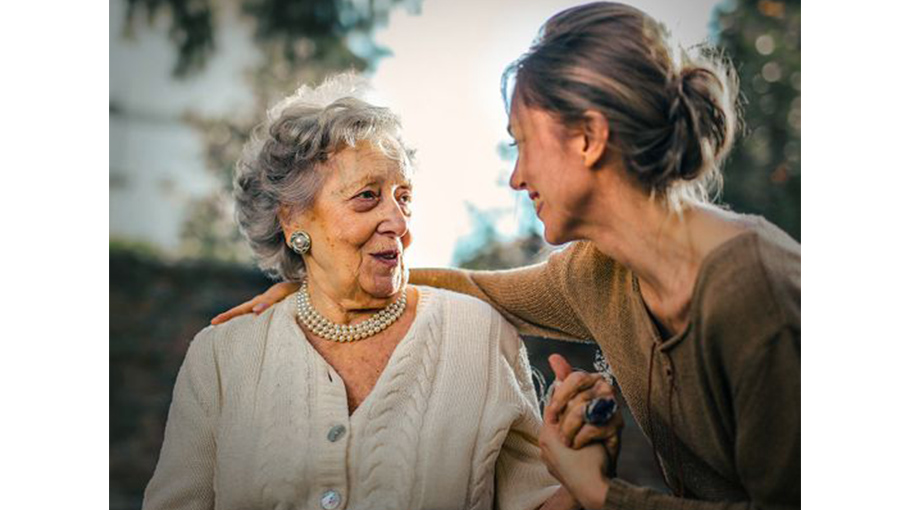Why adulting is so hard
Growing up is a realisation that we are at a stage where we have to handle everything

There are no warning signs, the crow’s feet like an artist’s imagination have long left their indelible mark, to colour or not to colour those peppery strands gone rogue is a dilemma older than even the scent of the pandemic.
Yet, there is something different about us, about them. While staring at our own mirror counting the wrinkles and scrambling for calcium did, we miss the signs or is it just another parent trap? How did our parents age?
For a generation that redefines frenzy, the compulsion to keep moving makes everyday a blur. We are often walking without seeing, running without watching. Did we miss the signs or is it just time doing its thing? Did time run away from us?
Perhaps it was Covid, an era that isn’t defined by just the obvious for it had a transformative mutation, it wasn’t physical for all but was nevertheless bruising. For our parents and their peers, the loss of routine, loneliness and lack of casual socialising was a steep road downhill. It made them sensitive to the ageing process, in our wishful thinking we would like to believe it is something that could have stayed at bay at least a little longer.
Cynics will dismiss this as the cycle of life but is anyone who was once a child ever truly prepared to stare it down, the mere illusion that we are stronger when once our parents were the guardians, that the torch is now in our hand. They were after all sprinkled in the magic dust of eternal parenthood. In life lesson 2.0 the shifting sands have a starring role, and the spotlight is on us. In this act the roles are reversed. The string of childhood memories is fading when once it was as clear as yesterday.
‘Sandwich’ generation
There is even a name for us, a rather unglamourous one: ‘sandwich’ generation. Perhaps it alludes to how there was a hierarchy and now it is all in the mix, children, parents, and us.
There is no manual, there can’t be when parents are the last people to give up their perch. If we are stubborn, we forget these are genes that are inherited. They are the OG; in their eyes we are still the interns.
Their collective pushback against our social media posts makes us feel forever eleven even while we navigate the good morning forwards come rain, fog, or smog.
Ironically, writer Kelly Williams Brown who first coined the word ‘adulting’ in her book a decade ago, admitted in an interview that shortly afterwards her own life blew up in ways that are unimaginable.
A roller coaster ride
Let’s call it out, it’s going to be a roller coaster ride, we thought adulting was just about getting a paycheck or waking up at 6am and sending kids to school in the right uniform. In the over-confidence that age is on our side we thought it was all about someone younger to order around at home.
In the midst we steered our boat through the meandering millennial sea and were just looking to get ahead of FOMO, quiet quitting and cancel culture when it all got even more confusing.
Here is what we now know, wearing a smart blazer and a stern expression won’t make the cut. Nor will shopping for toilet paper instead of a drink give us a venerable veneer.
Perhaps we confused it with adulthood, a ready or not here I am moment which gives a hall pass. Little did we realise then that it had a shelf life, when parents age it is taken back, one pass at a time. Keeping it basic helps, the word caregiver, just like old-age homes is not in our ethos. Here we are either children or parents and often both.
We just need to buy a family car to seat our parents and our children, together. That is our bubble, they depend on us the way we once depended on them. Child does become the father of man.
Visiting my mom
When I recently visited my mother who was under the weather, I found her in the kitchen making the traditional welcome back home food of mayonnaise with Russian salad, it’s a recipe that only the family which has never bought a jar in the market, knows.
Before she had to visit the doctor, she instructed me to switch on her hair curlers, no matter what she has always put her best foot forward.
Those are genes I have unfortunately not inherited but there is more than what meets the eye. It is this resilience that their generation has which will forever remain their legacy. We have our work cut out.
So, there we are with fidgety thoughts and an existential answer that we don’t want to face. Somedays it may be questionable on who is looking after who, but the hands they fit, whether they are small and chubby or wizardly and gnarled. This belonging is all that matters.
Jyotsna Mohan is the author of the investigative book ‘Stoned, Shamed, Depressed’. She was also a journalist with NDTV for 15 years.




